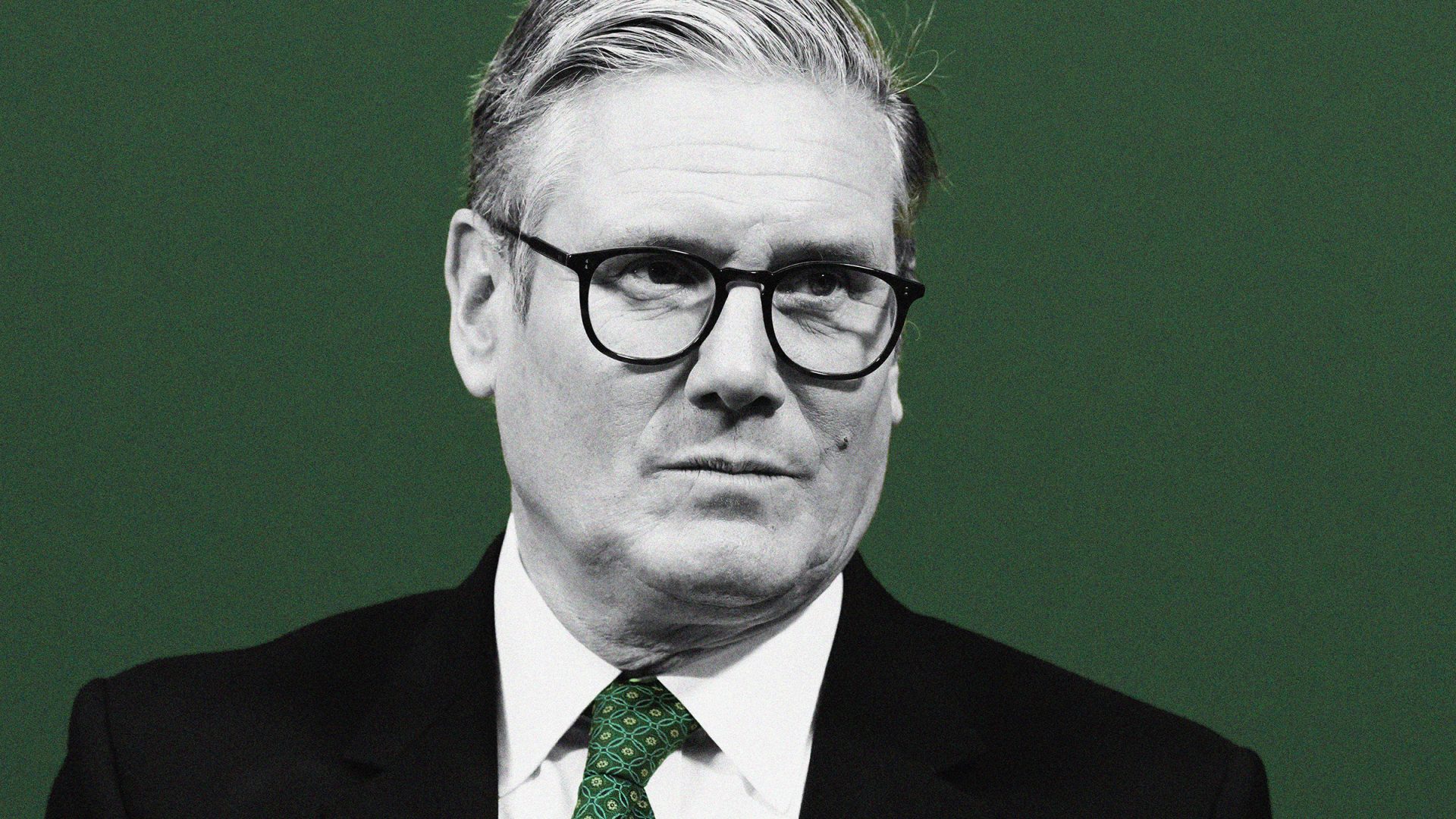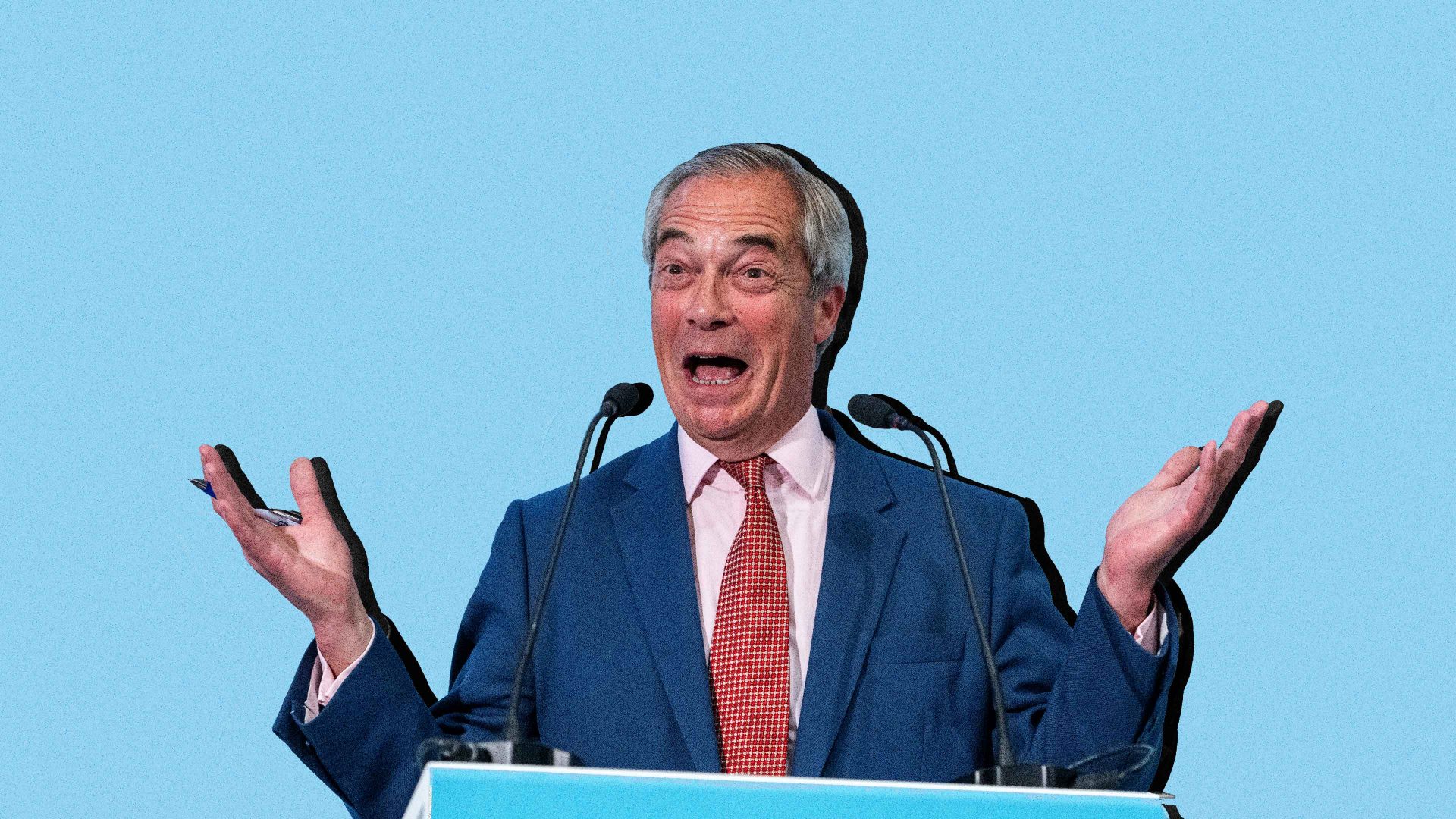Re: Donald Macintyre’s “Mutually assured obsession” (TNW #440). The big lesson for governments from the bombing of Iran appears to be: build some nukes, fast! If you have nuclear weapons (and can deliver them), you won’t be attacked, or be the victim of diplomatic bullying.
Who might be the early adopters of this principle? Turkey? Saudi Arabia? Japan? South Korea? Finland? Poland? Australia? I don’t suppose Taiwan has enough time…
RSP Zatsen
If a bunker-buster bomb contaminates water supplies in the Middle East with long-lasting radioactivity, is Donald Trump’s America going to foot the bill for compensation and clean-up?
Keith Hobbs
Donald Macintyre describes Benjamin Netanyahu’s “hatred and distrust of Iran and its leadership” as “irrational”. But his very next sentence reads, “There is a long and substantial history of Iranian animosity and threats towards Israel.” Might this provide Netanyahu’s rationale?
Rory Cunningham
Re: “Brexit’s doom loop” (TNW #440). The reason some people still listen to Farage is that no one is pointing out how much damage Farage’s Brexit has done to their lives.
In the traditional media he gets almost exclusively positive coverage, no challenge whatsoever. I can’t think of a high-profile journalist who has pointed out Farage’s Brexit lies or explicitly tied him to the economic harm done by Brexit.
Worse still, because of Labour’s refusal to even use the B-word, let alone criticise it, the government is incapable of mounting an effective anti-Farage campaign. “Pathetic” is the word that comes to mind. “Complacent” is another. Labour is sleepwalking into a far right victory at the next election.
Andrew Ball
“Brexit’s doom loop” was an excellent piece by Jonty Bloom. I have a father in his 80s who gets regularly scammed by unscrupulous people exploiting his vulnerabilities for their own gain. Reform are doing exactly the same.
Justin Clatworthy
I’m with Sonia Sodha on “The high price of Labour’s honesty deficit” (TNW #440). Barring an economic unicorn turning up, they will lose the next general election. They choose to upset everyone.
They upset the left because they refuse to tackle extreme wealth inequality; the right because of their stance on immigration; the centre because of the red lines on Europe.
Simon P Croft
It is inaccurate and blasé for Jonty Bloom to write that Reform voters “are the low-paid, the low-skilled”. I know many people with excellent skills and impressive salaries who voted Leave (not me by the way), but just believe the English are best and know best, and that we don’t need immigration. Farage knows that and uses it.
Sue Hickey
Alastair Campbell (Diary, TNW #440) rightly questions whether we do enough to “ensure that our children get access to, and benefit from, real immersion in all that the arts can do for them.”
I’ll be damned if my descendants see Britain as bland and barren when it comes to culture. And I’ll be damned if we lose the beautiful culture(s) we have accumulated already over the past 1,000 years.
Bring back pride in Britain’s accomplishments, bring back funding, save our culture from the turmoil and manipulation of these “culture wars”
Oliver Allen, 13, Derbyshire
Nigel Warburton’s piece on the importance of listening to opposing arguments (Everyday Philosophy, TNW #440) reminded me of a remark by the eminent Oxford philosopher, the late professor Sir Peter Strawson, at a dinner with us undergraduates.
One of us asked him if he had ever been “taken aback” by something an undergraduate had said; he replied after a moment’s thought, “if I had, I would have felt that I had been taken (pause for emphasis) forward”. Smiles all round.
John Richer, Oxford
Nigel Warburton is right. Debate is SO important. Cancelling and no-platforming (usually of perceived right wing views) and authoritarian censorship (whether political or religious) are equally repugnant to a genuine seeker of truth and wisdom.
Tony Jones
Philip Ball’s article (“On uncertainty”, TNW #440) captured well the main challenge of quantum mechanics, reflected in the uncertainty of those celebrating the 100 years since its formulation.
An enthralling, haunting interpretation of a subsequent meeting between Werner Heisenberg and Niels Bohr in 1941 was beautifully and metaphorically captured by Michael Frayn in his play Copenhagen, which ran in the West End some years ago. In this, too, the essence of the uncertainty of the science is reflected in the uncertainty of the events as recalled by the main protagonists.
At a time of heightened global tension it is worth recalling this meeting, which included discussions on the nature of nuclear power and its use. The play itself still reads well.
Dr John Crossman, Sherborne, Dorset
Philip Ball is one of your most interesting writers. It was entirely apposite that his scientific thoughts shared a double page with the equally fascinating philosophical musings of Nigel Warburton. The two deserved to go together. So why have you relegated him to page 37?
David Love, Exeter, Devon
I enjoyed Richard Luck’s superb account of the life of Peter Falk in the now international Great Lives (TNW #440).
Falk’s best friend and frequent collaborator, John Cassavetes, was much more than “a director of remarkable independent films” though. It is fair to describe him as the founding father of American independent cinema.
His 1959 film Shadows is generally regarded as the first US indie film. Martin Scorsese has acknowledged his influence, and the fabled New Hollywood of the 1970s would simply not have happened without him. In addition, Falk’s character in the 1980s classic Wings of Desire is described as “an angel who chooses to live as a human”.
While technically true, Falk is actually playing himself. The marvellous conceit being that the world-famous Columbo star Peter Falk is actually a retired angel who found fame as an actor.
Will Goble, Rayleigh, Essex
I was very taken with the Arts & Culture pieces on Sean Scully and Medardo Rosso (TNW #440) and how art echoes through the ages, mediums and artists themselves.
Was the connection deliberate? I was intrigued with these two unconnected masters having similar views – Scully: “You go to the mountain, if it’s there, it doesn’t have to describe itself” and Rossi: “There is no painting, there is no sculpture, there is only a thing that is alive.”
Both wonderful voices and work exploring their own and our worlds.
Rory Murphy, London N10
Re: “The lessons of Greece’s summer of tears” by Paul Mason (TNW #440). I remember that during the crisis the BBC had a flow chart showing every option open to the Greek government and the European Central Bank, all leading to the inevitable demise of the euro. In many ways it was a forerunner of their Brexit coverage.
John Shepherd
My wife and I have been going to Crete for over 20 years and have very good friends there. The crisis was an example of economics being viewed as more important than people’s lives. Until we understand that finance, banking, shares and profit are not as important as people’s lives, these patterns of boom and bust will continue.
Adam Primhak
Re Francis Beckett’s “Sarah Vine: the secret Remainer” (TNW #440). Vine genuinely seems unable to see why her nasty Mail columns make her complaints about others being nasty to her sound like rank hypocrisy.
Francis Beckett’s most important point, though, is the one about those who chose to back Brexit as a career choice, even though they were aware it would be a disaster for Britain. Sadly, there are many of these.
Liz Kane



